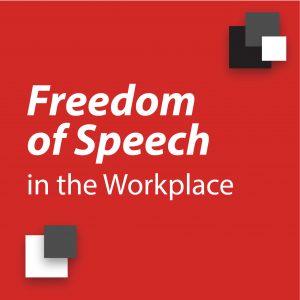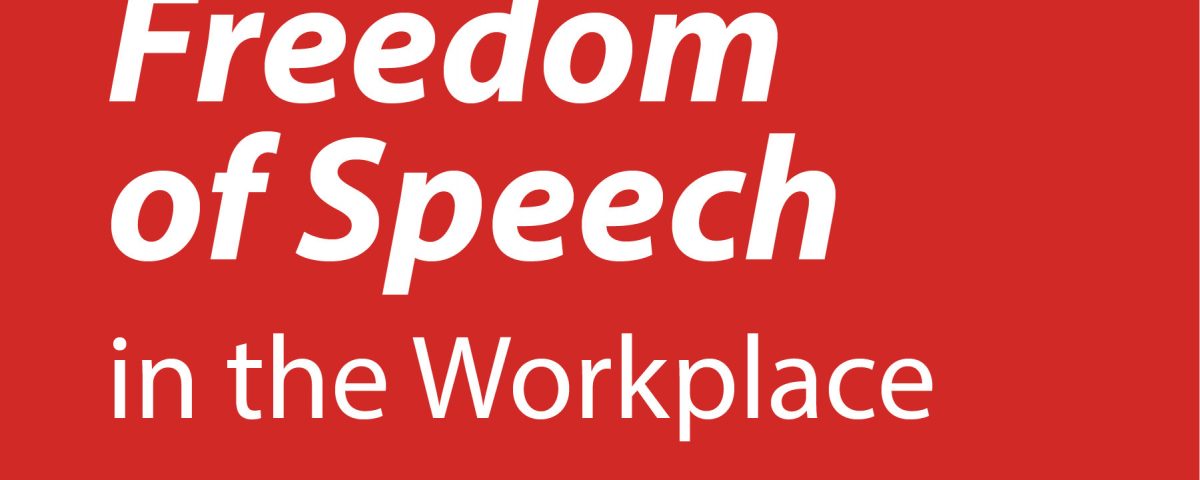
Connecting Your Systems to Work For You
June 19, 2020
What To Look For When Combining Systems
July 2, 2020 Everyone is entitled to their own opinion, right? What about when personal opinions cause conflict in the workplace? The First Amendment of the U.S. Constitution guarantees “freedom of speech” but how does that apply to the workplace? Can employees say or do anything they want in the workplace or do employers have the right to place some restrictions?
Everyone is entitled to their own opinion, right? What about when personal opinions cause conflict in the workplace? The First Amendment of the U.S. Constitution guarantees “freedom of speech” but how does that apply to the workplace? Can employees say or do anything they want in the workplace or do employers have the right to place some restrictions?
The First Amendment protects Americans’ free speech from intrusion by the Federal government excluding some specific situations. The U.S. Supreme Court has called the few exceptions to the First Amendment “well-defined and narrowly limited.” These include obscenity, fraud, true threats, defamation, incitement and speech that is “integral to already criminal conduct” (child pornography, for example). Shouting “fire” in a crowded theater is a popular analogy for speech that is not protected by the First Amendment.
Additional legislation has been enacted that applies only to public sector (federal, state and local government) employees and, in general, prohibits speech that impacts the government’s ability to effectively and efficiently fulfill its duties.
The First Amendment does not extend freedom of speech to the private sector. This means private sector employers have the ability to restrict what employees say, and in some cases do, in the workplace within certain legal guidelines:
- The National Labor Relations Act (NLRA) guarantees employees the right to “engage in concerted activity,” usually equated with union organization and participation. However, this also protects employees’ right to discuss terms and conditions of employment, including wages.
- Complaints about employment actions believed to be illegal, including harassment, discrimination, wage and hour violations, retaliation for filing a complaint, etc. are protected by law.
- “Whistleblower” complaints (reporting unlawful activity) are also protected in the areas of safety, environmental, financial and other workplace violations.
So what may employers do? First, they should have documented and well-communicated policies, usually in an Employee Handbook, with consistent enforcement. These policies may include:
- Prohibitions of political speech and/or controversial topics, including nonverbal speech (displays of political propaganda, buttons, T-shirts, stickers, etc.)
- Dress Code including prohibition of clothing with pictures/words that may be offensive to others, clothing that is too tight or revealing, requiring tattoos “offensive by community standards” to be covered
- Code of Conduct that including prohibition of gossiping or spreading rumors, profanity, threatening violence, insubordination or other disrespectful conduct, bullying or harassment, unauthorized disclosure of any confidential company information, etc.
- Social Media policy that includes reminders that employees should not represent themselves as a company spokesperson when expressing their own views and that company policies prohibiting discrimination and harassment apply to personal social media posts
It is always better to communicate company expectations to employees before you have to address behavior that is disruptive to the workplace.
An HR professional can help you with this and all of your human resources needs. From hiring the right employees, running background checks, creating employee handbooks that include anti-harassment policies and procedures, and so much more, Next Level Solutions can work with you to provide the services that you need to run your business.


